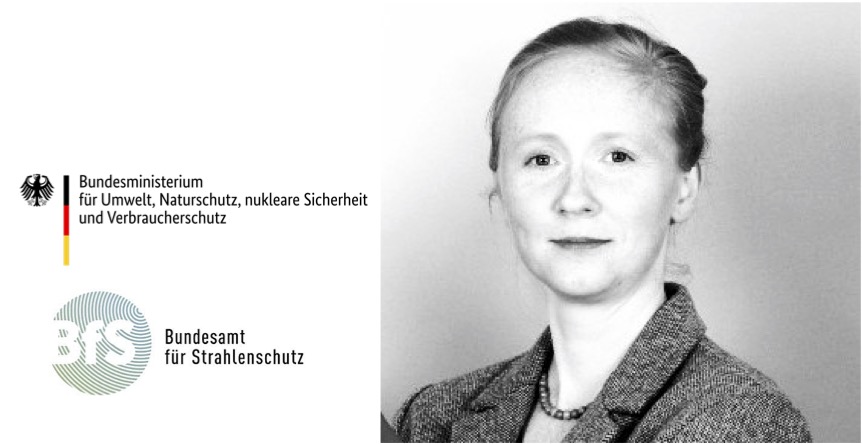
Marie Kuessner, Scientific referee at the German Federal office of radiation protection
What is your job?
I am a Scientific referee at the Federal office of radiation protection (Bundersamt für Strahlenschutz BfS), in Berlin, Germany. It was a 1.5-year contract that became permanent. The job consists of various independent tasks, for example writing guides, elaborate specific emergency plans for drinking water or providing information to the politicians (mainly the Federal Ministry for the Environmental, Nature Conservation, Nuclear Safety and Consumer Protection (Bundesministerium für Umwelt, Naturschutz, nukleare Sicherheit und Verbraucherschutz BMUV)).
How did you get your job?
It was actually a hint by a former colleague. I had met him during my PhD as we were working on the same network IsoNose. He was already working at the Federal office of radiation protection and he told me that they were looking for someone.
Did you initially plan on this career at the onset of your PhD?
Curiosity led me to do a PhD, I had the opportunity for carry on with a post doc but not enough to get in that competitive career path. Just the fact to know that I had the opportunity to carry on if I wanted was enough for me. I also wanted something more, closer to society, to the public. After a brief experience in teaching (Waldorf teaching), I decided to look for a job that would allow me to use my scientific skills to serve society and public needs, and also to organize a stable life for my newborn.
What helped you to be aware of the alternative career paths to academia.
I had some classes about non-academic jobs during bachelor, but that was not very prominent, and I was not so interested. After PhD I began to look for what could be else than academia. I looked for job opportunities on websites such as Greenjobs.
What are the skills acquired during your academic experience are the most valuable for you today? What are the new skills you learnt in your current job?
During my academic experience I learned how to work, how to organize myself, where to look for information in addition to soft skills. In parallel, I have acquired a solid basic scientific knowledge that I use every day, especially with regard to radioactivity. Finally, I gained basic knowledge in coding (Python) which helps me to understand the code of others in my work.
Would you have wished to have a special training during your time in academia to be more ready for your career today?
Science communication, for example, I wished I had learned how to write articles for websites (even if we already have a science communication office that does it). That would have been a plus to communicate to the public about radioactivity and human exposure to natural and anthropogenic radioactive sources.
In addition, for my position, I would also recommend to gain basic knowledge in law if it suits one’s interest. It is a key asset for the internal calls from the ministry to know how law works, and what kind of laws exist for a specific problem. A basic education in law, together with scientific skills, provides knowledge of Germany’s political position on environmental protection and sustainable development and may offer further opportunities to participate in UN meetings, for example. It is also possible to have access to such training as an internal training program organized by my employer.
What aspect of your work are you most excited about at the moment?
I really appreciate that I work independently on my projects while I can always get the feedbacks from my boss. As scientific referee you also have the opportunity to collaborate with working groups of people with different profiles, which is exciting. For example, on a project about radioactivity and drinking water and involving drinking water devices, I work with engineers, academics including chemists and biologists, as well as other regional officers). I also work on constructing emergency plans for drinking water which I found very impressive. It fulfills my curiosity.
What advice do you have for PhD student/academic staff who is thinking of leaving academia?
I have actually several: Being always opened for new things. Not be anxious about what is coming. Having the courage to be out of the comfort zone. “Sie kochen auch nur mit Wasser” (other people are also only human and have their own flaws). Doing with your character, most decision are driven by feeling, instinct, interhuman interactions. Having the courage also to try things and to be allowed to fail.
Interview conducted by Thaïs Couasnon (EAG Communications Committee)
